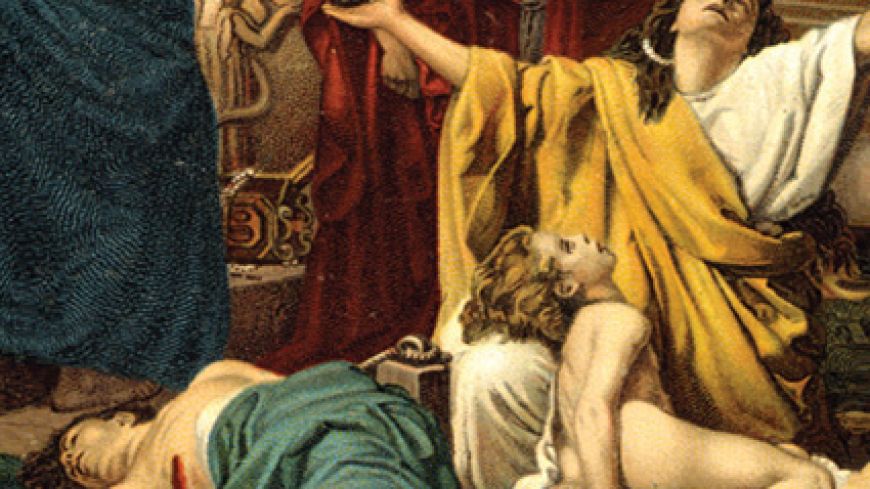
See, the conqu'ring hero comes!
Handel's oratorio tells of the triumph of the Jewish warrior-hero Judas Maccabaeus over the invading enemies of the Israelites, part of the decaying Seleucid empire famous for its army of 500 elephants. Thomas Morell's libretto is taken from the first eight chapters of the first Book of Maccabees. The arias, recitatives and choruses take note of victories and setbacks, but other than for the fall of Apollonius, do not describe them.
Only Judas Maccabaeus and his brother Simon are named participants. The other voices are an Israelitish Man and Israelitish Woman, two Messengers and Eupolemus, whom Judas sent to Rome to conclude a treaty of friendship and alliance.
The eventual victory was the story line for Handel, who composed the oratorio in 1746 to commemorate the battle victory at Culloden of the younger son of the Hanoverian sovereign King George II, the Duke of Cumberland, against the French-supported Jacobites.
The work has been popular since its first performance in 1747 and throughout the Scottish Enlightenment period. For this reason and for the beauty, drama and originality of its arias, duets and choruses it made an intriguing and inspiring choice for this year's Opening Concert.
William Christie, a Handel specialist, masterly conducted the Scottish Chamber Orchestra and the Edinburgh Festival Chorus, led by Christopher Bell, in a first class performance of one of Handel's most enduring oratorios.
There were some magnificent choruses from the choir's 125 voices, among them the lively "We come, we come, in bright array", the challenging "Lead on, lead on! Judah disdains", the powerful "We never, never will bow down" and the joyous and well known "See, the conqu'ring hero comes" and "Sing unto God, and high affections raise".
Each of the soloists was special and so appropriate. William Burden's Judas gave us the power and stature of the warrior-hero, whilst Neal Davies, the baritone who sang both Simon's and Eupolemus's music, gave us confidence and contentment. Rosemary Joshua, soprano, as Israelitish Woman and Sarah Connolly, mezzo-soprano, who was dressed for the part as Israelitish Man, were balanced yet satisfyingly different and stylish in their narrative arias and duets. Although a smaller part from Reno Troilus the countertenor, his was also effective.
From the orchestra the harpsichord and organ playing proved subtle and not overwhelming. There were times when only a small number of strings, one of each, were playing and, just as when the full orchestra was playing, we were given a fine evening by the Scottish Chamber Orchestra.

